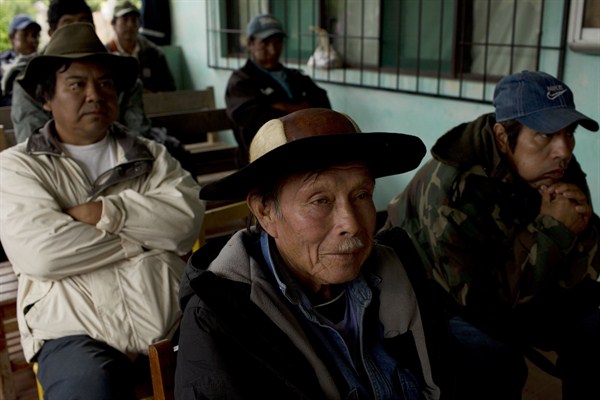Editor's note: This article is part of an ongoing WPR series on the impact of falling oil and commodities prices on resource-exporting countries.
Bolivian President Evo Morales has overseen remarkable economic growth since he took office in 2006, and last year the economy grew by 5.4 percent, thanks in large part to exports of gas and other natural resources. In an email interview, Jean-Paul Faguet, professor of the political economy of development at the London School of Economics, discussed Bolivia’s economy and its dependence on commodities.
WPR: How effectively has the Bolivian government used the past decade’s commodity boom to promote development and reduce poverty?

